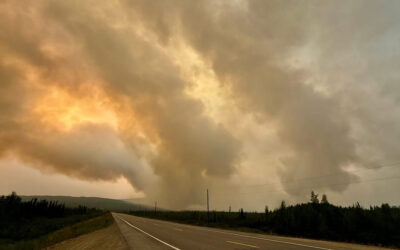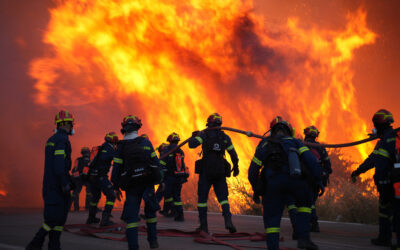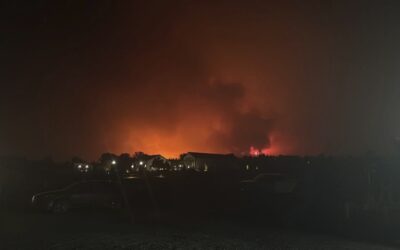Years ago, when I was an Ops Chief on a type 1 IMT, my IC used to talk to us knuckle-dragging, aggressive Ops people and remind us to practice “humble professionalism”. At first, I didn’t appreciate his words. I thought, “Just let us do our job. What’s all this stuff about humble professionalism?” It was really confusing to me. What did humble professionalism have to do with me putting out the damned fire. And how was being humble going to help me manage whatever the emergency was? It was like taking in information during a briefing that you don’t know what to do with. You know it must be important, so you just file it away for later use.
But then I started to think about what it meant to practice humble professionalism. I thought back to when I had been the Ops Chief on a type 2 team, and we were sent to Wyoming to help a local county fire department who was getting their asses kicked by several lightning fires started a few days earlier. After the team in-brief, my IC took me off to the side and said, “Go easy on these guys, they’re feeling pretty whipped, and they don’t really want an outside IMT coming in and taking their fires.”
So, to keep the peace, I asked the fire department to assign one of their personnel to each of our division supervisors to help with local knowledge, make strategic suggestions, etc. But the real reason I made this request was simply to make the locals feel less pushed aside and more like we wanted their input and assistance. When we arrived, the local firefighters needed help. They needed it bad. Our IMT could have come in with guns blazing and made the locals feel worse than they already did. But my IC was wise and knew our job was bigger than just putting out their fires. But I was laser focused on just fighting the fires. The little effort I made to include the locals in our suppression efforts paid huge dividends. When we started, the local IC was angry and frustrated that his people were being replaced by some outsiders; by the time our assignment was over, we had new friends. The local fire chief gave me his dirty sweaty fire department ballcap as a memento of his thanks. We had educated the whole fire department that asking for outside help isn’t necessarily a bad thing. I was starting to understand the concept of humble professionalism. (You can listen to this story at BobbieOnFire.com https://wordpress.com/post/bobbieonfire.com/180 )
Fast forward a few years later and now as a type one Ops, I realized this was what my IC was talking about…. humble professionalism. I learned that I gained so much more when I approached my leadership style with that same attitude. I learned that as a supervisor, manager and leader, I didn’t need to act like a cartoon character tough guy. I already had positional power. Now I needed to listen more and speak less. And for someone with my personality, that isn’t an easy task. If you’ve read or listened to my stories, or read my book, you know there were still plenty of times I had to amp up to get someone’s attention. But that wasn’t my normal style. My normal style became much more mellow.
Anytime I responded to an incident as a part of an IMT, I had the opportunity to come in with guns blazing. “Stand back, Bobbie the Ops Chief is in charge, step back, step back, I’ve got this one.” I mean, technically I was… and I did. But walking in with a swagger and an attitude wasn’t going to help the situation. As a matter of fact, it was only going to make things worse. Adopting those overtly macho characteristics isn’t helping the locals. We adopt those mannerisms for our own ego. Think about it. Is there ever a reason to act tough, like you know it all? Yea, probably there are those moments, but they should be rare. Over the years, I’ve responded to hurricanes, mega-fires, house fires, landslides, 9-11, auto accidents and the list goes on. Not once would it have been helpful when arriving on scene to say, “step back, step back, the heroes are here. We’ll take care of this.” I had learned the lesson that humble professionalism gets the job done while lifting up those around me.
It doesn’t matter if you’re responding to a single tree snag and you’re being delivered to the fire via a parachute, rappel lines, engine or walking in on your boots. It doesn’t matter if you’re responding to a commercial building downtown or the World Trade Center. We respond with the intention of helping. Or that should be our intention. I hope our intention isn’t to make ourselves feel important. Our motivations can have huge impacts on our behavior and performance. Think about it.
As a retired firefighter and now a public speaker, I have the opportunity to visit with and speak to firefighters from all over the country. I mostly talk about leadership and because of my background, about diversity too. I almost always walk away proud to have been a leader in the fire service for over 40 years. I love to listen to the firefighters and officers talk about their experiences and hopefully how my stories and suggestions can help them in their career and life. I get asked advice and perspectives on their challenges and hopefully I help them out. It’s very enjoyable and fulfilling for me.
This past year I had the opportunity to present at a large national fire training event. I was just one of many instructors presenting during a breakout session. I was excited to attend and be a part of this training session. A professional acquaintance of mine was also there presenting. She, like me, had many years of experience and had risen through the ranks to the highest levels of her organization. She was educated, experienced in both the hands-on part of our work as well as the higher level administrative/political part of our careers.
One evening, we met for drinks to discuss how our different sessions were going and how we were enjoying the conference. I started out kind of coy hiding my feelings about the conference until she made her opinion clear. She stated how the environment was not what she expected. “It’s a bit much,” she said. “Oh my gosh, yes!” is how I responded. I didn’t want to say anything negative, but it came gushing out of me.
In my 44-year-long fire career, I hadn’t been around so much macho chest thumping. I was embarrassed and felt totally out of my element. I watched the swagger of the young firefighters walking by. I listened in to the conversations of those attending. It didn’t make me feel proud to have been a firefighter for so many years. Instead, I kept thinking about my IC from years ago talking about humble professionalism and what these young firefighters would have thought about that topic.
The firefighters attending my class were respectful and attentive and were clearly interested in my topic and wanted to learn. That much was positive. It emphasized the point that there were many firefighters attending who weren’t chest thumping heroes. But I’m sorry to say, the overall environment was disappointing to me.
I see a bit less hero complex chest thumping amongst wildland firefighters. It’s still there, but it’s harder to act like a hero when you’ve been sleeping in the dirt for weeks and are filthy and exhausted. But we all have the potential to develop the hero complex if we’re not careful. I worked with guys who wore the chest thumping hero complex like a cape around their shoulders. How and why does this happen? Is it insecurity on their part? Maybe. Or maybe it’s just easier to act that way and eliminate serious communications with those we’re working with or responding to help. Whatever the motivation, it creates a hard-shell around us that keeps us from learning, being honest and growing as professionals.
In my storytelling and writing I’ve often talked about self-introspection. I hope this topic makes you stop and think about your motivation to be a firefighter. Ask yourself questions about how you behave on and off the job. When someone asks what kind of work you do, does your chest kind of puff up when you say “firefighter?” We should have pride in our profession, but we must be careful that we don’t let our egos get in the way. Maybe I’m just an “old boomer.” No, let me correct that. I am an old boomer. But I firmly believe we all perform better when we follow my old ICs advice and practice a little humble professionalism.
Now Available
Both Sides of the Fire Line is Bobbie Scopa’s uplifting memoir of bravely facing the heat of fierce challenges, professionally and personally. It’s available now.
Order from Amazon Order from Barnes & Noble
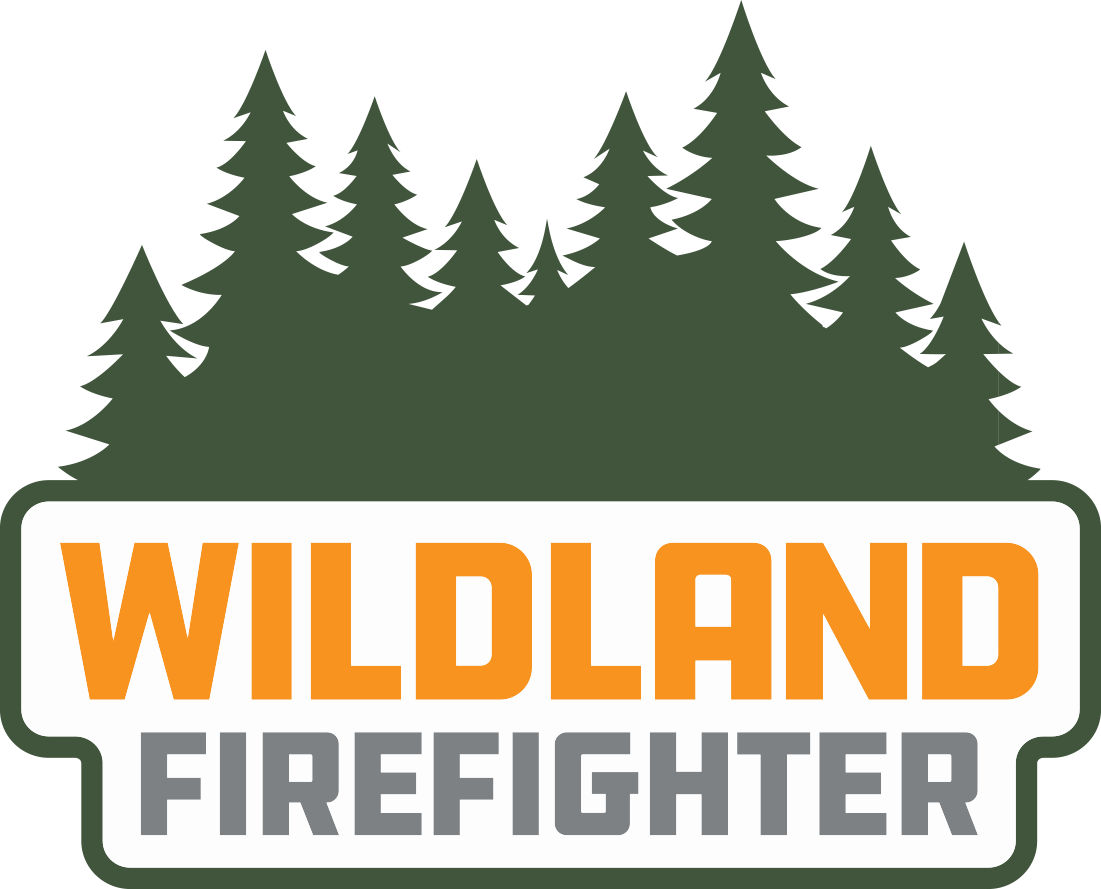
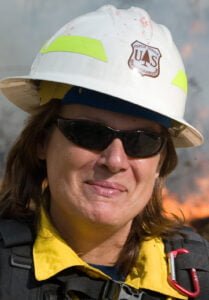 Bobbie Scopa started her career as a seasonal firefighter in 1974. After graduating from Arizona State University, she went on to work in fire and natural resource management. Eventually she left the wildand agencies to work full time for a structure fire department. She finished her Masters in Forestry at NC State then went back to the US Forest Service and BLM eventually becoming the Assistant Regional Fire Director in Region 6. Bobbie has spent many years working as a type 1 and 2 Operations Section Chief. You can listen to Bobbie tell audio stories from her long career at BobbieOnFire.com. She has also recently completed her memoir titled “Both Sides Of The Fire Line”. It will be available through Chicago Review Press late summer of 2022.
Bobbie Scopa started her career as a seasonal firefighter in 1974. After graduating from Arizona State University, she went on to work in fire and natural resource management. Eventually she left the wildand agencies to work full time for a structure fire department. She finished her Masters in Forestry at NC State then went back to the US Forest Service and BLM eventually becoming the Assistant Regional Fire Director in Region 6. Bobbie has spent many years working as a type 1 and 2 Operations Section Chief. You can listen to Bobbie tell audio stories from her long career at BobbieOnFire.com. She has also recently completed her memoir titled “Both Sides Of The Fire Line”. It will be available through Chicago Review Press late summer of 2022.